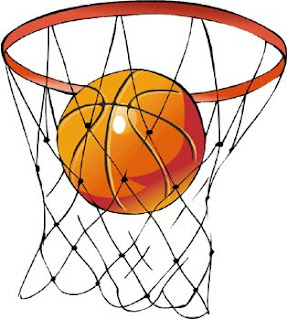War! What Is Good For? Sports Metaphors!

In 2003, then-U. of Miami football player Kellen Winslow, Jr. made the following statement after a loss to the University of Tennessee:
"Yeah, I don't give a hell. It's about this U, man. I don't give a flyin' you-know-what about a Vol. I don't give a damn! He would do the same thing to me. It's war. They don't give a freakin' you-know-what about you. They will kill you. They're out there to kill you. So I'm 'a kill 'em. You write that in the paper. You write that. You make money off that. No, man, I'm pissed. All y'all take this down. I'm pissed, man. We don't care about nobody except this U. We don't. If I didn't hurt him, he'd hurt me. They were gunnin' for my legs. I'm a come right back at 'em. I'm a fuckin' soldier!"
WInslow's comments caused an immediate controversy in the sports media world, with blogs, newspaper reporters and those stalwart defenders of moral wisdom, ESPN, taking him to task. Listening to the normally dapper Dan Patrick bloviate about how 'wrong' it was for Winslow to make those comments while we were fighting two wars overseas, I thought, "Well, yes, it's definitely an overblown and wrongheaded analogy. On the other hand, when you're someone, like Winslow, who's grown up hearing football games discussed (on, um, ESPN?) as "wars," coaches as "generals," and quarterbacks as "field captains"; when sports plays are referred to as "long bombs," "shotgun formations," and "marching down the field"; when ABC (like ESPN, a Disney-owned entity), once started its Monday Night Football broadcasts with computer graphics of military leaders planning football plays, for god's sakes; isn't it just a little strange to think that Winslow wouldn't have grown up making the analogies between war and football?" As Michael says in The Godfather, Part II, "We're all part of the same hypocrisy."
Well, we're still fighting over in Iraq and Afghanistan, and now we have another remark to ponder, from Coppin State basketball coach Fang Mitchell:
We were life and death. Last night we were in Afghanistan, and today we're in Iraq. We were in a battle. That's all we knew. So when we got out of there alive, we were happy.
If you want to be judgmental and moralistic, this is actually more offensive than what Winslow said: it's not just an analogy between sports and the military, but between a game and two specific wars, and between playing and dying. Think it will get the same coverage as Winslow's statement? It hasn't so far: SI's Luke Winn called it (without any apparent irony) "one of the Great Uses Of War Metaphors," while Baltimore Sun writer Rick Maese noted it without comment. Is that because the statement is less problematic? Because our perspectives on those conflicts might have changed in the last five years? Is it a sign of our addiction to the underdog-- that we'll let the "little guy" get away with things that football factories like U-Miami couldn't?
Understand, I'm not asking for Mitchell to apologize: the response to Winslow was understandable but overblown, and I'm not sure we need to yell at a coach speaking in the emotionally overwhelming moments after a game. But that's just it: why have one set of standards for a coach, and another for players? Especially when we'd expect the older guy, the leader of a team, to be more mature than a twentysomething player?


Comments
That's a really good point: I"m sure the size and prominence of the schools makes a difference. And Winslow didn't do himself any favors when he got in that bike accident a few years later (although he's since developed into a fine player for Cleveland). Still, I think that does suggest another layer to the double standards thing: I don't disagree with what you wrote, but do think that if media folks are going to get so morally outraged, they do so regardless of the school's visibility. Otherwise, it just looks like convenient carping, you know? If they have a bias, they should just admit the bias.